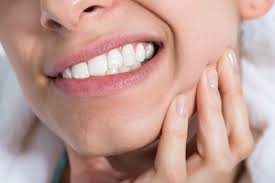Night bruxism, or grinding your teeth in your sleep, is something that affects many Australians. It can be difficult to tell if this is a problem for you. After all, you’re asleep! But since night grinding can have a serious impact on your teeth and your health, it’s worth looking into. Here are five ways to tell if you are grinding your teeth in your sleep.
1.Your partner can hear it.People often report hearing sounds at night that turn out to be their bed mate’s grinding. It might not sound like grinding, but more like a squeaking noise. It may not have occurred to your partner that you are the one making the sound, so ask if they’re hearing any odd noises.
2.You have other sleep issues.Night bruxism is classified as a sleep disorder. It often is associated with other sleep disorders, such as sleep apnoea or insomnia. If you have either of these problems, the odds that you are also grinding your teeth are higher.
3.You have pain or jaw tension.If your jaw feels tight or sore, especially first thing in the morning, it is a sign that you’ve been working those muscles all night. 4.You might also experience inflammation in the area that can be felt as pain in the ear, face, or neck. You could have raised lines on the inside of your cheek, where you are biting down.
5.Your tongue is scalloped.If you can see the indentations of your teeth around the edge of your tongue, that’s a good indication you have been pushing your tongue against your teeth as you are clenching or grinding.
You have a family history of sleep grinding.If your parents or siblings grind their teeth in their sleep than the chances that you do also is higher. As with many health issues, it’s a good idea to get your family background.
If the signs suggest you are grinding your teeth at night, talk to usat Morrin Dental, Newcastle. Our dentists can check your teeth for signs of wear or damage, and suggest ways to protect your them.
